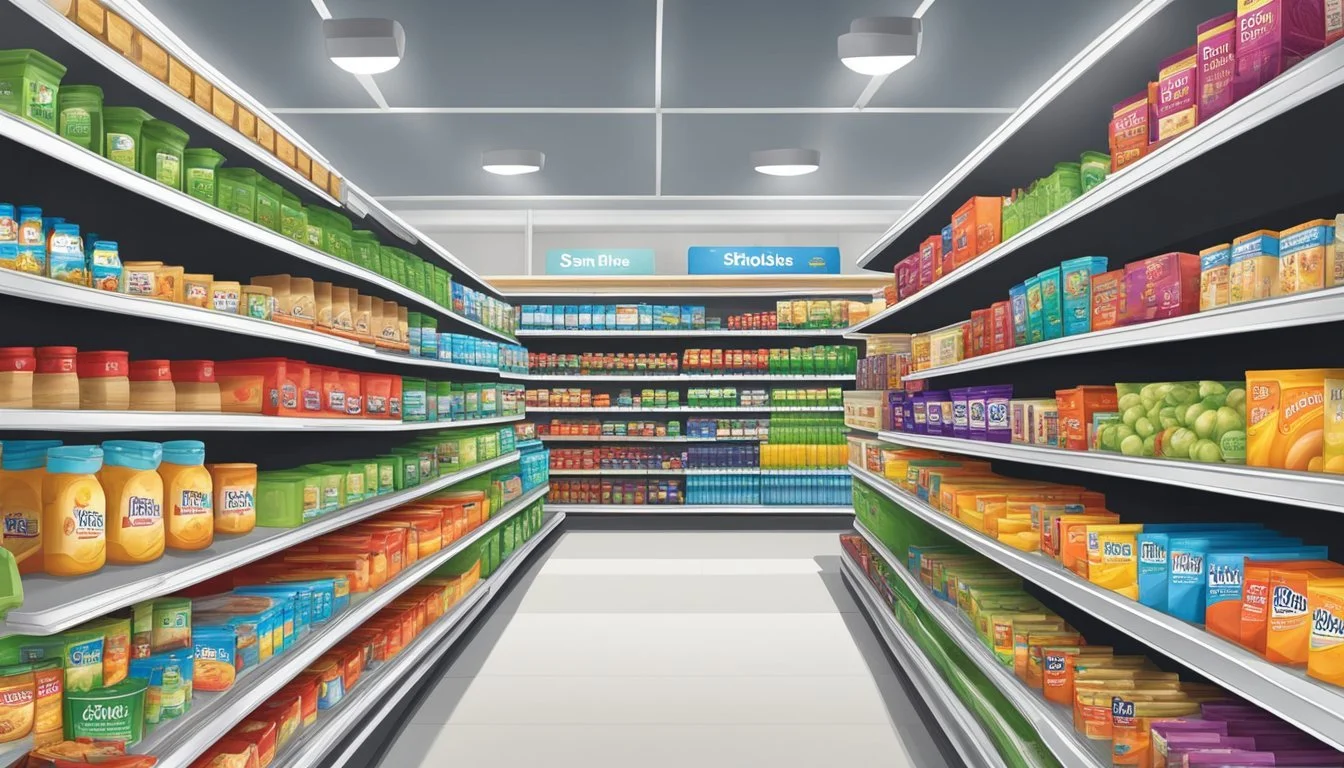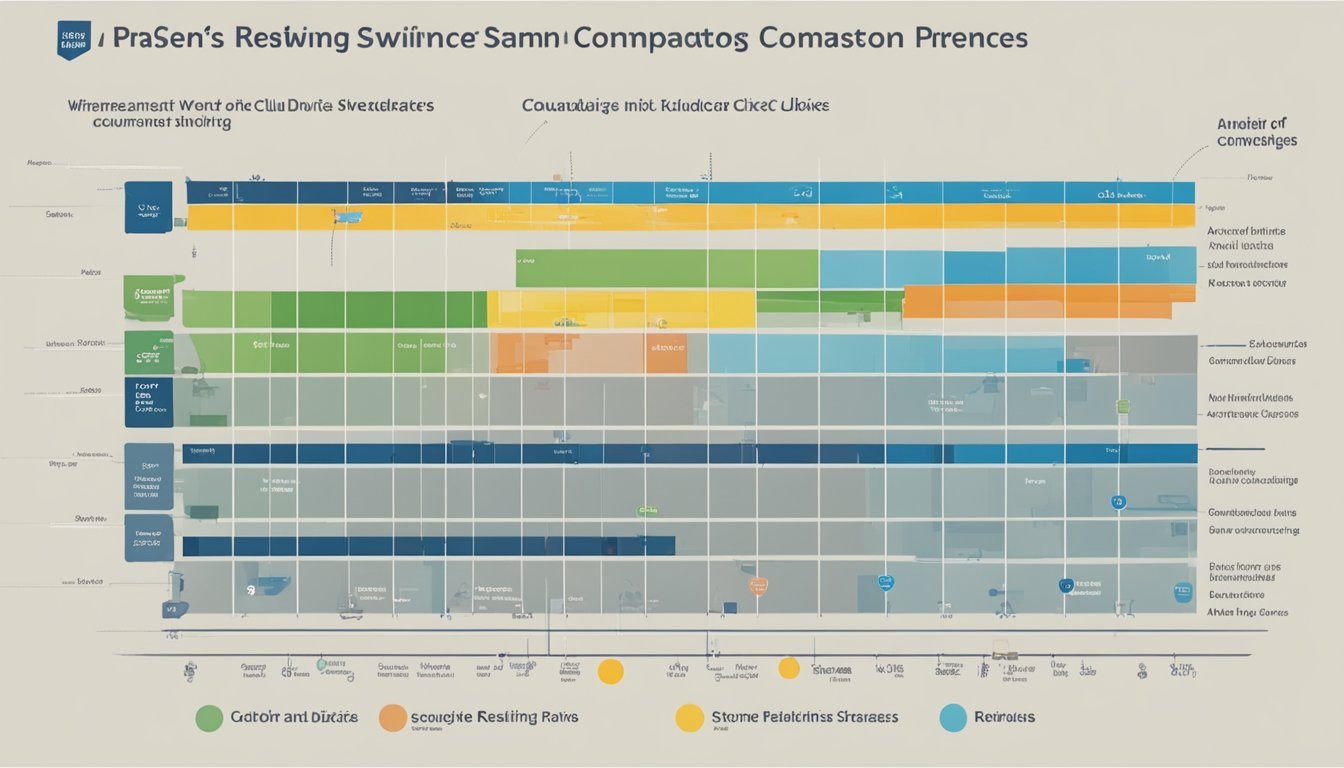Sam's Club vs Winn-Dixie
Comparing Shopping Experiences, Prices, and Selection
Part of Our Grocery Store Guide with Details on Sam's Club and Winn-Dixie
When it comes to grocery shopping, consumers often weigh their options based on value, quality, and convenience. Sam's Club and Winn-Dixie are two prominent grocery store chains that offer distinct shopping experiences. Sam's Club, a membership warehouse club owned by Walmart Inc., provides bulk items and a variety of general merchandise at competitive prices. It caters to customers looking for larger quantities and often includes a range of house-brand products as part of its strategy to offer cost savings.
Winn-Dixie, a southern grocery store chain, is known for its commitment to quality grocery items and emphasis on providing a traditional grocery shopping experience. With the introduction of its line named SE Grocers, Winn-Dixie aims to deliver the same taste and high quality as national brands, but at a lower cost. They claim the best values are found on everyday items such as bread and chicken, suggesting a focus on economy without compromising on standards.
While Sam's Club requires an annual membership fee, which may influence shoppers' choice, members can enjoy the benefits of discounted bulk pricing. In contrast, Winn-Dixie provides immediate access without a membership but emphasizes quality and savings through its store brands. Both stores have their unique selling points, and the decision on which grocery store is better might come down to individual shopping needs and priorities, be it the bulk savings at Sam's Club or the quality and regional familiarity of Winn-Dixie.
History and Business Models
In comparing Sam's Club and Winn-Dixie, one considers the distinct histories and business models that define their place in the American supermarket landscape. Each has carved a niche with unique strategies for serving their consumer base.
Sam's Club Origins and Expansion
Sam's Club, a division of Walmart Inc., began its journey in 1983 in Midwest City, Oklahoma. Founded by Sam Walton, it operates on a membership warehouse club model, which allows it to offer products at lower prices than typical retail outlets due to its bulk sales strategy. As of 2024, Sam's Club has expanded significantly, establishing hundreds of locations across the United States. This expansion reflects its success in catering to both individual shoppers and small businesses looking for volume discounts.
Winn-Dixie's Growth and Consumer Base
Winn-Dixie's history dates back to 1925, having been established in Jacksonville, Florida. Throughout the late 20th century, the chain experienced growth through acquisitions and the expansion of its store network, particularly in the Southeastern United States. Winn-Dixie operates primarily as a traditional retail supermarket, focusing on a diverse range of grocery products including its own private label brands like the Chek brand soft drinks. The store gained the nickname "The Beef People" owing to its emphasis on providing a variety of meat products to its customers. As of 2024, Winn-Dixie endures as a familiar staple with a loyal consumer base, despite the competitive pressures from other supermarket chains.
Product Selection and Variety
When comparing Sam's Club and Winn-Dixie, a clear understanding of their product selection and variety is crucial. Each store has its strengths in different departments, which can significantly impact consumer preference.
Comparing Produce Offerings
Sam's Club offers a vast array of produce options in bulk, catering to families or businesses needing larger quantities. Their inventory typically includes a standard variety of fruits and vegetables, with organic options available. On the other hand, Winn-Dixie provides a more regional selection tailored to local tastes and often features sales on produce, making it a go-to for weekly shoppers interested in buying more traditional quantities.
Meat and Deli Variety
The meat selection at Sam's Club is expansive, with a range of choices from basic meats to gourmet cuts. They are known for offering value packs, which are ideal for large gatherings or stocking up the freezer. Additionally, their deli provides a considerable variety of meats and cheeses, including bulk purchases. Winn-Dixie's meat department may not have the same bulk options, but they offer a selection of quality meats suitable for daily shopping. Their deli counter features a variety of sliced meats and cheeses, often highlighting regional favorites.
Bakery and Specialty Goods
In the bakery department, Sam's Club boasts an assortment of bread, cakes, and pastries. Custom cake ordering is available, making it a convenient option for special occasions. Their specialty goods range is broad, extending from international foods to party platters. Winn-Dixie's bakery offers freshly baked goods, including artisan bread and desserts tailored to local preferences. Their specialty goods selection, while not as extensive as Sam's Club, focuses on quality and regional specialties, including a notable variety of cheeses.
Pricing Strategies
Determining the better grocery store between Sam's Club and Winn-Dixie hinges significantly on their pricing strategies, influencing both budgets and perceived value. Customers are drawn to stores where their money yields the most products, especially essential items.
Membership Costs and Benefits
Sam's Club operates on a membership model where customers pay an annual fee to access the store. In 2024, the basic annual membership fee for Sam’s Club stands at $45, while the higher-tier "Plus" membership costs $100. The Plus membership includes additional benefits such as free shipping for online orders, early shopping hours, and cashback rewards. This model theoretically allows Sam's Club to offer lower prices by spreading operating costs over a large base of members.
Winn-Dixie's Pricing Policies
Winn-Dixie, on the other hand, does not require a membership for shopping. The store often implements aggressive pricing policies, including weekly promotions, digital coupons, and a loyalty program that can save customers a significant amount of money. As of 2024, Winn-Dixie's loyalty program offers members access to exclusive deals and the ability to earn points redeemable for discounts on future purchases. Winn-Dixie strategically positions itself as a budget-friendly option, with a focus on competitive prices and value throughout its product range.
Quality and Freshness
Consumers often prioritize quality and freshness when selecting a grocery store. Sam's Club and Winn-Dixie both cater to their customer base with varied offerings in fresh produce and meat quality.
Fresh Produce and Organic Choices
Sam's Club offers a wide range of fresh produce, including a selection of organic fruits and vegetables. They source produce with an emphasis on freshness, and consumers can typically find seasonal offerings. Winn-Dixie also provides a variety of vegetables and fruits, and their SE Grocers line is known for providing value without compromising on the taste quality of their produce.
Sam's Club
Wide range of produce
Seasonal selections available
Organic options
Winn-Dixie
SE Grocers line offers comparable taste quality
Focuses on affordability
Meat Quality and Sourcing
Regarding meat products, consumers have distinct options at Sam's Club and Winn-Dixie. Sam's Club has a reputation for providing quality meat with volume purchasing options, ideal for consumers looking to buy in bulk. On the other hand, Winn-Dixie is recognized for its own brand, SE Grocers quality meat, often considered a cost-effective alternative to national brands. Information on meat sourcing is available to those concerned with animal welfare and quality.
Sam's Club
Bulk meat options
Transparent sourcing
Quality meat selections
Winn-Dixie
SE Grocers meat at competitive prices
Quality often compared to national brands
Animal welfare considerations in sourcing practices
Both stores strive to offer quality meat products, with Sam's Club being a choice for those buying large quantities and Winn-Dixie an option for those seeking value for money in meat purchases.
Brand and Product Availability
When shopping at Sam's Club or Winn-Dixie, customers will encounter a variety of products ranging from name brand items to store brands, including options that support local producers and cater to those seeking international flavors.
Name Brand vs. Store Brand
Sam's Club, operating under the umbrella of Walmart, provides a broad selection of name brand products across all categories. However, it also promotes its own store brand, Member's Mark, which offers everything from pantry staples to frozen foods. Member's Mark is often priced lower than its name brand counterparts and is designed to meet high-quality standards.
Winn-Dixie, recognized for its own store brand known as SE Grocers, competes by offering products that commonly match the taste and quality of name brands. Furthermore, customers at Winn-Dixie can expect to find the SE Grocers brand to be approximately 20% cheaper than name brands for items such as white sandwich bread and raw chicken.
Local and International Products
Sam's Club and Winn-Dixie both provide an array of products that touch on the local and international spectrum. Sam's Club leverages its wide network to offer a range of international products, including specialty cheeses and ethnic food items. They also occasionally stock local products, though this may vary by location.
Winn-Dixie, predominantly based in the southern United States, has a strong emphasis on local products including fresh produce from local farmers and regional specialities. Moreover, consumers have access to grass-fed options, showcasing a commitment to quality and supporting local agricultural practices. International selections are present but may be more limited compared to larger, national chains.
Shopping Experience
When comparing the shopping experience between Sam's Club and Winn-Dixie, customers will notice distinct differences in store layout, design, and customer service which can significantly impact their shopping routine.
Store Layout and Design
Sam's Club operates on a warehouse model, providing large, open spaces designed for bulk purchasing. Its aisle are often wide to accommodate the storing and movement of large quantities of goods which are typically presented on pallets or in large shelving units. Shoppers may find this layout utilitarian and less focused on the aesthetic appeal, but it efficiently serves those looking to buy in bulk.
In contrast, Winn-Dixie has a more traditional supermarket layout, with a focus on sectioned areas for different product types such as fresh produce, bakery, meats, and dairy. Winn-Dixie's design is often considered more inviting with clearer signage and a store atmosphere that caters to a traditional grocery shopping experience.
Customer Service and Convenience
Sam's Club:
Membership requirement: Shoppers need a paid membership to purchase goods, which may limit convenience for some potential customers.
Self-service: Sam's Club incorporates self-service technologies in check-out for faster transactions, although during peak times, the store may seem understaffed.
Winn-Dixie:
Accessibility: No membership is required to shop, making it accessible to a wider audience.
Services: Offers additional services such as deli counters, pharmacies, and sometimes floral sections, enhancing the customer service experience.
Despite the differences, both retailers prioritize customer convenience but in different ways—Sam's Club excels in efficient bulk purchasing while Winn-Dixie provides a straightforward, accessible shopping experience with more personalized services.
Discounts and Savings Programs
The right grocery store can make a significant difference in a shopper's budget, particularly through their discounts and savings programs. Both Sam's Club and Winn-Dixie offer distinct programs designed to reward their customers, with membership discounts and a variety of promotions.
Membership Discounts at Sam's Club
Sam's Club provides its members with exclusive discounts primarily through its tiered membership structure. The basic membership allows for bulk purchase savings inherent to warehouse shopping models. Meanwhile, the Plus membership enhances this offering with additional benefits:
Savings on Pharmacy and Optical: Plus members can receive select generic prescriptions for free and discounts on other pharmacy items.
Cash Rewards: Offering 2% back on qualifying purchases, Plus members can accumulate savings over time.
Additionally, Sam's Club members can save money by purchasing items at member-only prices. Through its connection with Walmart, Sam's Club leverages its buying power to offer lower prices.
Winn-Dixie Rewards and Promotions
Winn-Dixie operates a points-based rewards program, where customers earn points on eligible purchases, which can then be used for discounts on groceries and fuel. The specifics include:
Digital Coupons: Shoppers can clip digital coupons directly to their rewards account.
Bonus Points: Certain products provide bonus points that increase the rewards earned.
App Deals: The Winn-Dixie mobile app lets users activate offers and redeem coupons for additional savings.
By incentivizing the use of their mobile app and leveraging promotional items, Winn-Dixie aims to create a more immersive savings experience for its customers.
Consumer Insights and Ranking
Evaluating Sam's Club and Winn-Dixie involves examining consumer insights and market rankings to understand how customers perceive these grocery stores.
Customer Satisfaction Surveys
Surveys are commonly used to measure customer satisfaction by gathering feedback on various aspects such as price, quality, service, and selection. In a consumer satisfaction ranking, Winn-Dixie finds itself positioned lower, at 55th, compared to other supermarkets. Sam's Club, on the other hand, is usually mentioned separately as it is a warehouse club, but it typically garners more favorable positions in terms of customer satisfaction among bulk retailers.
Market Research Reports
Market research reports provide valuable insights into the performance of brands in the competitive retail landscape. One such report from Consumer Reports places Winn-Dixie within its Grocery Stores & Supermarkets test program, emphasizing varied criteria including product quality and store environment. While specific rankings for Sam's Club are not detailed, as a part of the Walmart family, it benefits from the extensive market presence and economies of scale of its parent company, influencing its trust and value perception among consumers.
Community Involvement and Sustainability
Sam's Club and Winn-Dixie both focus on initiatives that prioritize sustainability and support local communities. Each takes a unique approach to fostering relationships with local farmers and implementing beneficial environmental practices.
Support for Local Farmers and Butchers
Sam's Club, a subsidiary of Walmart Inc., is known for its bulk sales model and generally does not emphasize local sourcing in its business practices. However, Sam's Club does participate in Walmart's broader commitment to supporting local economies which may include purchasing from local farmers where feasible.
Winn-Dixie has a history of community involvement and works with local farmers and butchers to provide fresh, locally sourced products. Through its support, Winn-Dixie contributes positively to the local economy and promotes sustainability by reducing the carbon footprint associated with long-distance transportation of goods.
Environmental Initiatives
Sam's Club has implemented several environmental initiatives, including waste reduction programs and energy-efficient store designs. They strive to reduce their carbon footprint through Walmart's sustainability goals, which include sourcing from renewable energy sources and reducing greenhouse gas emissions.
Winn-Dixie's parent company, Southeastern Grocers, has demonstrated a commitment to the environment through initiatives such as a reusable bag program. This program encourages customers to reduce plastic waste by purchasing reusable bags, with a portion of the proceeds supporting local charities. Moreover, this initiative allows customers to direct a donation towards a non-profit of their choice, further strengthening community ties and supporting environmental sustainability.
Competitor Comparison
In assessing the value of Sam's Club and Winn-Dixie, it's important to consider how they stack up against similar competitors in terms of pricing, product variety, and shopping experience.
Sam's Club vs. Other Wholesale Retailers
Sam's Club competes closely with other wholesale giants such as Costco and BJ's Wholesale Club. When comparing these retailers, Sam's Club often offers competitive pricing, particularly on bulk items, which is a core aspect of the wholesale market model. In contrast, Costco is celebrated for its high-quality Kirkland Signature brand and a wide selection of organic products. Moreover, BJ's tends to provide a more localized assortment of goods. Sam's Club memberships are priced competitively against these retailers, providing additional discounts and services to attract consumers.
Membership Costs:
Costco: $60 for a basic membership.
Sam's Club: $45 for a basic membership.
BJ's: Around $55 for a basic membership.
Product Selection:
Costco: Broad selection, including electronics and furniture.
Sam's Club: Similar to Costco, with a focus on value packs.
BJ's: More localized and unique SKU varieties.
Winn-Dixie vs. Regional Supermarkets
Winn-Dixie finds its competition among regional supermarket chains like Publix, Kroger, and Aldi. Winn-Dixie's pricing on everyday items like white sandwich bread and raw chicken can be more affordable, as it is often around 20% cheaper than national brands. Conversely, Publix is recognized for its clean stores and customer service but tends to have higher price points. Aldi is another strong competitor, known for its low prices and a no-frills shopping environment that appeals to budget-conscious shoppers. Kroger, being one of the largest supermarket chains, offers competitive pricing and an extensive range of products, including its own store brands like Great Value.
Price Comparisons:
Winn-Dixie: Lower price point, particularly with SE Grocers brand.
Publix: Higher prices but strong in customer service and store environment.
Aldi: Very competitive pricing with a focus on store-brand products.
Kroger: A blend of value and variety, with an extensive private label lineup.










